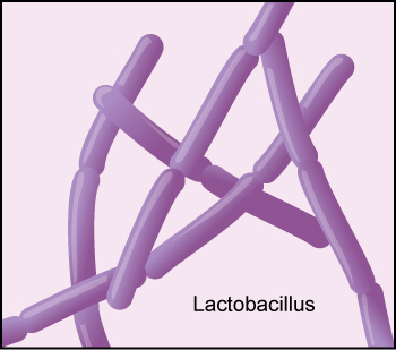Probiotics
What are probiotics?
Probiotics are dietary supplements that contain normal, potentially beneficial bacteria and yeasts. The currently adopted definition of a probiotic by the FAO/WHO (the United Nations Food and Agricultural Organization and the World Health Organization) is: "Live microorganisms which when administered in adequate amounts confer a health benefit on the host". Probiotics are used to recolonize the gastrointestinal tract when it is suspected that the normal balance of microflora (bacteria) has become disturbed. Many products are available commercially, containing a variety of species, including Lactobacillus (L. acidophilus, L. bulgaricus, L. thermophilus, L. reuteri,) Acidophilus, Bacillus, Streptococcus (S. bulgaricus), Enterococcus (E. faecium), Bifidobacterium (B. bifidus), and Saccharomyces (S. boulardii).
Why recommend administration of probiotics to my pet?
Probiotics are given orally and are recommended for patients showing symptoms of intestinal disorders. They are recommended to maintain or re-establish the normal balance of bacterial flora in the intestinal tract, and to treat overgrowth of pathogenic (disease-causing) bacteria.
"The normal intestinal balance may have been disrupted by drugs, a change in diet, exposure to a pathogenic virus or bacteria, or inflammation of the gastrointestinal tract."
The normal intestinal balance may have been disrupted by drugs, a change in diet, exposure to a pathogenic virus or bacteria, or inflammation of the gastrointestinal tract.
 The general goal of probiotics is to displace potentially pathogenic or disease-promoting bacteria with those recognized as having beneficial effects. For example, bacteria recognized as desirable synthesize organic compounds that support the normal growth and maturation of cells lining the intestine. Increased numbers of desirable bacteria results in less space for toxin-producing undesirable bacteria. The metabolic by-products of desirable flora may also alter the environment of the gastrointestinal tract away from conditions that support disease-causing bacteria.
The general goal of probiotics is to displace potentially pathogenic or disease-promoting bacteria with those recognized as having beneficial effects. For example, bacteria recognized as desirable synthesize organic compounds that support the normal growth and maturation of cells lining the intestine. Increased numbers of desirable bacteria results in less space for toxin-producing undesirable bacteria. The metabolic by-products of desirable flora may also alter the environment of the gastrointestinal tract away from conditions that support disease-causing bacteria.
Probiotic bacteria also appear to alter the inflammatory and immune response of the gastrointestinal tract, suggesting they may play a beneficial role in the management of inflammatory bowel disease. Different bacteria invoke a different response from the host's immune system. Some probiotic bacteria appear to trigger the immune system of the gastrointestinal tract to synthesize different chemicals and hormones, resulting in a reduction of damage due to inflammation. Other probiotic bacteria enhance the production of certain antibodies which can then coat and protect the surface of the intestinal tract.
What species of animals are being treated regularly with probiotics?
Dogs, cats, and occasionally rabbits are the usual species treated with probiotics. In Europe, probiotics are frequently used in the treatment of horses and ruminants. Clinical experience in North America and Europe in the use of probiotics in pets is extensive.
How much research has been conducted on this supplement?
"...additional studies exploring their ability to treat disease are needed."
Substantial research has been conducted on the effects of probiotics in humans, although additional studies exploring their ability to treat disease are needed. Only the general mechanisms by which they act are beginning to be understood. Relatively little research has been conducted on the use of probiotics in dogs, cats and farm animals. Despite the lack of research, probiotics appear to be completely safe.
How can my pet benefit from probiotics?
Probiotics have been shown to be beneficial in the treatment of diarrhea and gastric ulceration due to infectious causes. They may also counter the deleterious effects of long term antibiotic use on gut microflora. They also appear to be of benefit in the treatment of inflammatory bowel disease due to their immune modulating effects. While not yet adequately researched, they appear to be both safe and effective as part of an integrated approach to treating the above diseases.
Where do I get probiotics and do I need a prescription?
Probiotics tend to be more effective when given several days in a row, and when the bacteria count of the product is as high as possible. Unfortunately, a recent veterinary study showed that the vast majority of products reviewed did not contain what was stated on the label and were potentially ineffective. Sometimes the numbers of active bacteria were too low. In other cases, completely different species of bacteria were contained in the product than what was advertised.
"Pet owners are well advised to consult their veterinarian regarding reputable brands, their proper storage, and their use."
Pet owners are well advised to consult their veterinarian regarding reputable brands, their proper storage, and their use. A prescription is not needed for probiotics.






